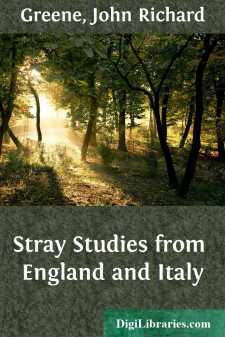Categories
- Antiques & Collectibles 13
- Architecture 36
- Art 48
- Bibles 22
- Biography & Autobiography 815
- Body, Mind & Spirit 144
- Business & Economics 28
- Children's Books 18
- Children's Fiction 14
- Computers 4
- Cooking 94
- Crafts & Hobbies 4
- Drama 346
- Education 58
- Family & Relationships 59
- Fiction 11835
- Games 19
- Gardening 17
- Health & Fitness 34
- History 1378
- House & Home 1
- Humor 147
- Juvenile Fiction 1873
- Juvenile Nonfiction 202
- Language Arts & Disciplines 89
- Law 16
- Literary Collections 686
- Literary Criticism 179
- Mathematics 13
- Medical 41
- Music 40
- Nature 180
- Non-Classifiable 1768
- Performing Arts 7
- Periodicals 1453
- Philosophy 65
- Photography 2
- Poetry 896
- Political Science 203
- Psychology 44
- Reference 154
- Religion 515
- Science 126
- Self-Help 85
- Social Science 83
- Sports & Recreation 34
- Study Aids 3
- Technology & Engineering 59
- Transportation 23
- Travel 463
- True Crime 29
Our website is made possible by displaying online advertisements to our visitors.
Please consider supporting us by disabling your ad blocker.
Stray Studies from England and Italy
Description:
Excerpt
A BROTHER OF THE POOR.
There are few stiller things than the stillness of a summer's noon such as this, a summer's noon in a broken woodland, with the deer asleep in the bracken, and the twitter of birds silent in the coppice, and hardly a leaf astir in the huge beeches that fling their cool shade over the grass. Afar off a gilded vane flares out above the grey Jacobean gables of Knoll, the chime of a village clock falls faintly on the ear, but there is no voice or footfall of living thing to break the silence as I turn over leaf after leaf of the little book I have brought with me from the bustle of town to this still retreat, a book that is the record of a broken life, of a life "broken off," as he who lived it says of another, "with a ragged edge."
It is a book that carries one far from the woodland stillness around into the din and turmoil of cities and men, into the misery and degradation of "the East-end,"—that "London without London," as some one called it the other day. Few regions are more unknown than the Tower Hamlets. Not even Mrs. Riddell has ventured as yet to cross the border which parts the City from their weltering mass of busy life, their million of hard workers packed together in endless rows of monotonous streets, broken only by shipyard or factory or huge breweries, streets that stretch away eastward from Aldgate to the Essex marshes. And yet, setting aside the poetry of life which is everywhere, there is poetry enough in East London; poetry in the great river which washes it on the south, in the fretted tangle of cordage and mast that peeps over the roofs of Shadwell or in the great hulls moored along the wharves of Wapping; poetry in the "Forest" that fringes it to the east, in the few glades that remain of Epping and Hainault,—glades ringing with the shouts of school-children out for their holiday and half mad with delight at the sight of a flower or a butterfly; poetry of the present in the work and toil of these acres of dull bricks and mortar where everybody, man woman and child, is a worker, this England without a "leisure class"; poetry in the thud of the steam-engine and the white trail of steam from the tall sugar refinery, in the blear eyes of the Spitalfields weaver, or the hungering faces of the group of labourers clustered from morning till night round the gates of the docks and watching for the wind that brings the ships up the river: poetry in its past, in strange old-fashioned squares, in quaint gabled houses, in grey village churches, that have been caught and overlapped and lost, as it were, in the great human advance that has carried London forward from Whitechapel, its limit in the age of the Georges, to Stratford, its bound in that of Victoria.
Stepney is a belated village of this sort; its grey old church of St. Dunstan, buried as it is now in the very heart of East London, stood hardly a century ago among the fields. All round it lie tracts of human life without a past; but memories cluster thickly round "Old Stepney," as the people call it with a certain fond reverence, memories of men like Erasmus and Colet and the group of scholars in whom the Reformation began....


